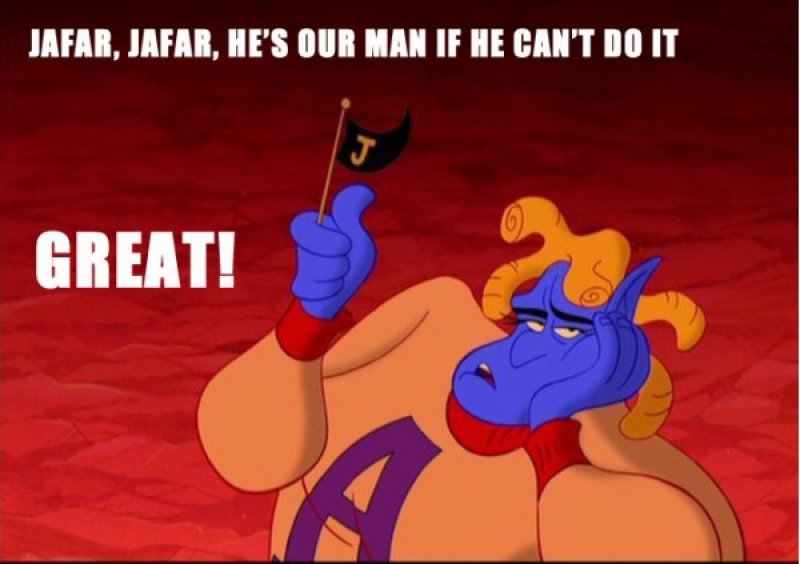The scene with the first suitor on the horse establishes that one's worth in this world is directly correlated with how many material things one has.
Jasmin's father says that he wants Jasmin to be taken care of and provided for after he is gone. A loving declaration on the surface but also an insult to her independence and individuality.
It seems that there is a correlation between the accent of a character and whether he or she is good or evil. Antagonists tend to have a thicker "Arab" accent while the protagonists speak perfect English. The linked article talks about this topic a little more, not limiting itself to Aladdin in particular.
At least in the movie, the first time Aladdin sees Jasmin is not peeping in on Jasmin while she is taking a bath.
It is interesting that each character has an animal associated with them. Furthermore, the only one that talks is associated with the villain.
The relationship between Aladdin and Jasmin moves unusually quickly, but it has become much more progressive or realistic than Snow White.
The talks of violence including beheading, dismemberment, and murder are so light and neglected. It is easy to see how a young child might be desensitized or even grow comfortable with these practices after being introduced to them in this way.
The "golden rule" is especially realistic and consistent with the source material. In fact, the entire movie centers around the fact that the one with the gold makes the rules.
Aladdin in the cave of wonders vaguely reminds me of the mythical tales of Orpheus as well as Persephone. In both cases, the cave of wonders is like the underworld, and touching anything or looking back at anything can doom you. The cave is scene is successful in communicating themes of greed and temptation.
The rule that the genie cannot kill anybody is amusing, considering that this would be pretty little to ask in the original source text.
I never noticed this when I was younger, but Jasmin's father is quite the permissive parent and also a terrible sultan. There are so many problems that would be solved if he was just more competent.
The genie shifting into a flight attendant after allowing Aladdin to escape says a lot about the stage that feminism was in during the time. The stereotypical portrayal of the job could be seen as both offensive and non-progressive.
Aladdin's entourage after becoming a prince is not very different with the description in the source material. He is surrounded by women and traveling behind an army of slaves. His parade also highlights his material things, which serve as proof that he is worth something. I am happy to see that Jasmin is not impressed at all with this display.
I did not remember this scene, but I found it extremely amusing that Disney chose to make their own adaptation of the princess helping Aladdin to "kill the African magician." Although instead of dying, Jafar simply becomes a genie. This also included my favorite scene:

Wait, if the sultan could just do away with the any law he doesn't like, why didn't he do it earlier?



No comments:
Post a Comment